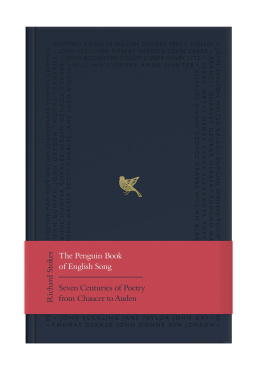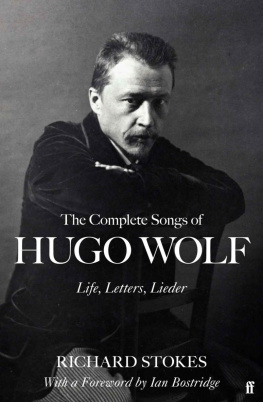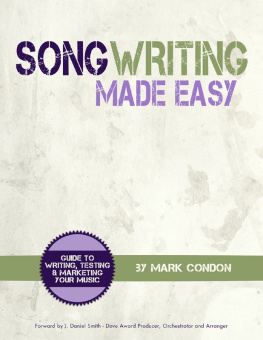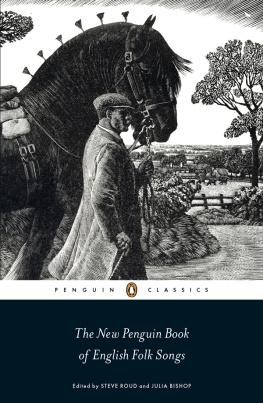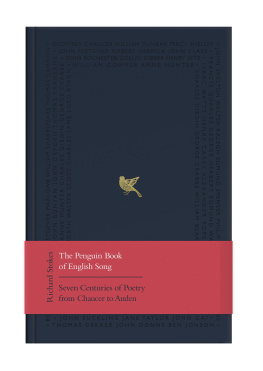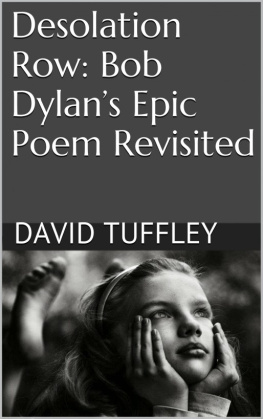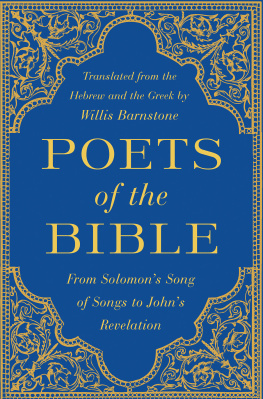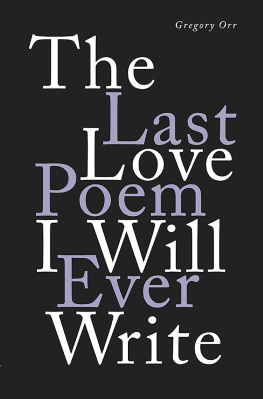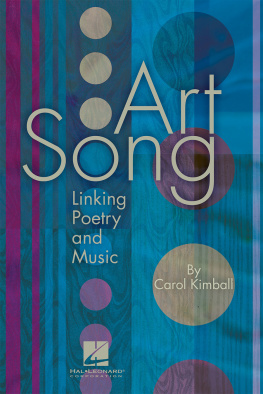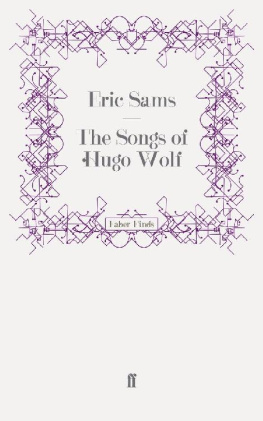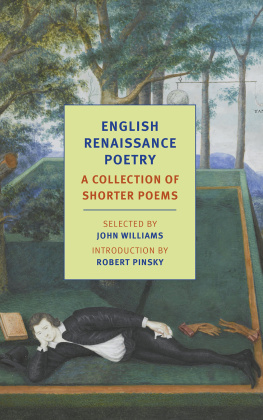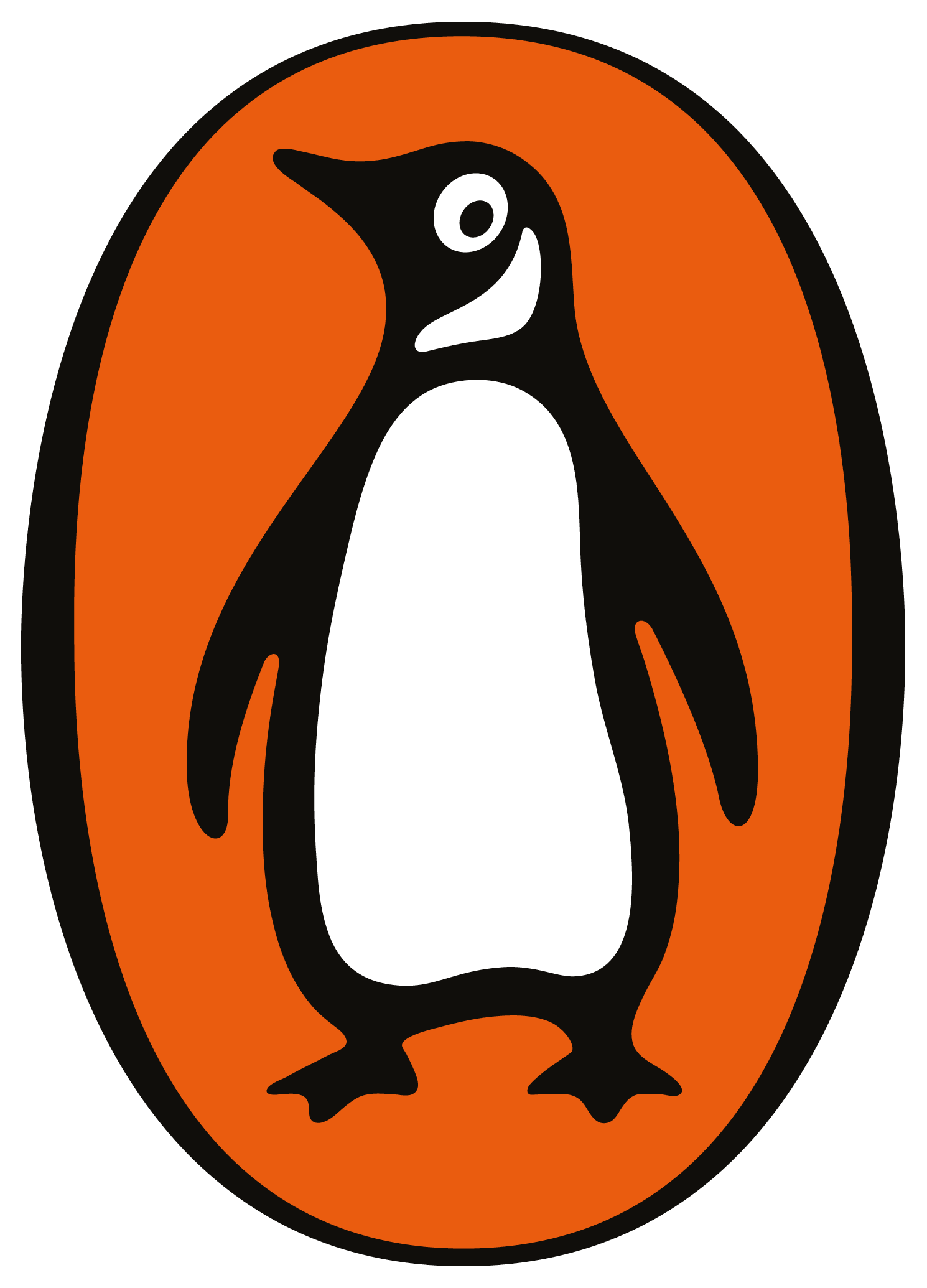Contents
Richard Stokes
THE PENGUIN BOOK OF ENGLISH SONG
Seven Centuries of Poetry from Chaucer to Auden
PENGUIN CLASSICS
UK | USA | Canada | Ireland | Australia
India | New Zealand | South Africa
Penguin Books is part of the Penguin Random House group of companies whose addresses can be found at global.penguinrandomhouse.com.
First published 2016
Copyright Richard Stokes, 2016
The acknowledgements on constitute an extension of this copyright page
Cover Design: Richard Green
The moral right of the author has been asserted
ISBN: 978-0-141-98255-7
THE BEGINNING
Let the conversation begin...
Follow the Penguin Twitter.com@penguinUKbooks
Keep up-to-date with all our stories YouTube.com/penguinbooks
Pin Penguin Books to your Pinterest
Like Penguin Books on Facebook.com/penguinbooks
Listen to Penguin at SoundCloud.com/penguin-books
Find out more about the author and
discover more stories like this at Penguin.co.uk
This book is dedicated to Ian Partridge, peerless in this repertoire, Audrey Hyland, Jonathan Freeman-Attwood, Mark Wildman and all at the Royal Academy of Music who promote the art of song.
Acknowledgements
Of the books listed in the Bibliography, I am especially indebted to Professor Stephen Banfields Sensibility and English Song (Cambridge University Press, 1985). This encyclopedic survey of English song from the late nineteenth century to the middle of the twentieth ends with the song lists of fifty-four composers and over 5,000 songs invaluable information for anyone interested in the development of English song and I should like to thank Professor Banfield for allowing me to make use of his research into the dating of these songs. When two dates appear in brackets after the title of a song, roman denotes date of composition or completion, italics refer to the year of publication.
Many people have helped in the preparation of The Penguin Book of English Song. Graham Johnson, as always, has been generous with his time, knowledge and library; with Iain Burnside I had fruitful discussions about contemporary English song. Judith Chernaik, Lucasta Miller, Roy Foster, David Gilmour, Steven Curran and Philip Reed advised me on the chapters devoted to Shelley, Emily Bront, Yeats, Kipling, Joyce and Auden; Gavin Griffiths and Jonathan Keates read the typescript with an eagle eye and made many valuable suggestions; Jonathan Katz supplied translations from Greek and Latin; Kathy Adamson and her staff at the Royal Academy of Music have been tireless in their search for elusive books and scores. Finally, I should like to thank my family for their patience with my technological incompetence; and Carola Lotzenburger and Gina Thomas for their timely belief in the book.
Grateful acknowledgement is made to the following for permission to reprint previously published material:
W. H. Auden: from Collected Poems, copyright 1976, Edward Mendelson, William Meredith and Monroe K. Spears, Executors of the Estate of W. H. Auden. Reprinted by permission of Random House, Inc., Curtis Brown, Ltd.
Hilaire Belloc: from Collected Poems. Reprinted by permission of Peters, Fraser & Dunlop, Ltd. on behalf of the Estate of Hilaire Belloc.
Walter de la Mare: from The Complete Poems of Walter de la Mare, copyright 1975, Walter de la Mare. Reprinted by permission of the Literary Trustees of Walter de la Mare and The Society of Authors as their representative.
Wilfrid William Gibson: from Whin. Reprinted by permission of the Wilfrid Gibson Literary Estate.
Robert Graves: from The Complete Poems: Volume I, copyright 1995, Trustees of the Robert Graves Copyright Trust. Reprinted by permission of Carcanet.
John Masefield: from The Collected Poems of John Masefield. Reprinted by permission of The Society of Authors as the representative of the Estate of John Masefield.
Edith Sitwell: from Collected Poems. Reprinted by permission of Peters Fraser & Dunlop, Ltd. on behalf of the Estate of Edith Sitwell.
Dylan Thomas: from The Collected Poems of Dylan Thomas. Reprinted by permission of David Higham Associates, Ltd.
Introduction
Poetry and music have been associated with each other from the very beginning. Short poems are still called lyrics, even though they are now not usually sung to a lyre; Virgils Aeneid begins: Arma virumque cano I sing [not tell] of arms and man; a sonnet, though rarely sung, derives its name from the word song; many poems from the Elizabethan age to the present have been called Song, with no musical setting; and music, for many of us, is an integral part of poetry. The Penguin Book of English Song contains a great variety of poems from the fourteenth to the twentieth century that have reached a wider audience through the magic of music. As John Dryden wrote in the dedication of Purcells The Vocal and Instrumental Musick of The Prophetess, or The History of Dioclesian (1690):
Musick and Poetry have ever been acknowledgd Sisters, which walking hand in hand, support each other; As Poetry is the harmony of Words, so Musick is that of Notes: and as Poetry is a Rise above Prose and Oratory, so is Musick the exaltation of Poetry. Both of them may excel apart, but sure are most excellent when they are joind, because nothing is then wanting to either of their Perfections: for thus they appear like Wit and Beauty in the same Person.
There are many books available in English that introduce the reader to the world of French, German, Italian and Spanish song, among them A French Song Companion (OUP), The Book of Lieder (Faber and Faber), Italian Art Song (Indiana University Press) and The Spanish Song Companion (Scarecrow Press). There is no equivalent book on English song, no book that provides an anthology of English verse with commentaries on poets, composers and, when textual explanations are needed, poems. Each of the 100 chapters of The Penguin Book of English Song, arranged chronologically from Chaucer to Auden, opens with information about the poets life, work and, often, approach to music. This is followed by a choice of poems that have inspired musical settings, arranged chronologically by composer. Piano-accompanied song predominates, but not exclusively. Benjamin Britten, for example, is represented not only by such works as Winter Words (Hardy) for voice and piano, but also his Spring Symphony (Spenser, Clare, Milton, Herrick); Nocturne (Shelley, Tennyson, Wordsworth, Owen, Keats, Shakespeare) for tenor, seven obbligato instruments and string orchestra; A Ceremony of Carols (Southwell) for trebles and harp;

